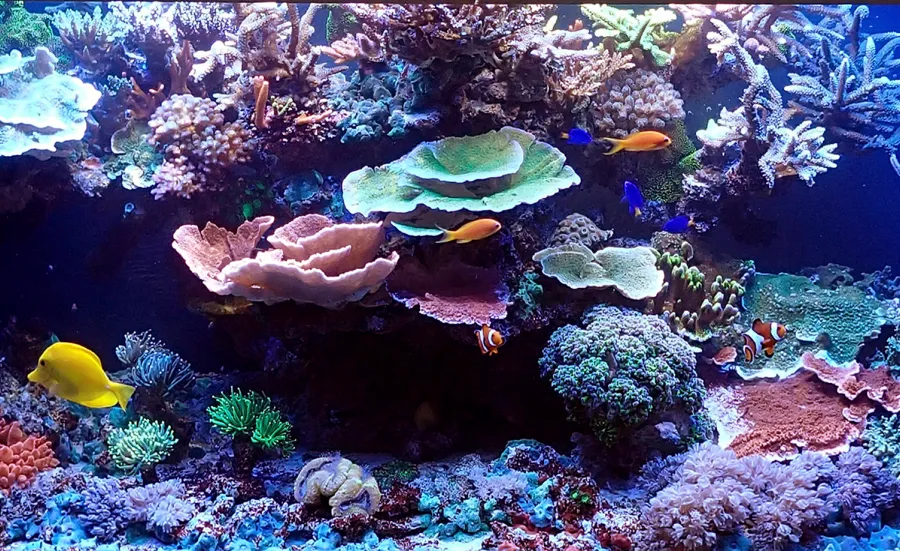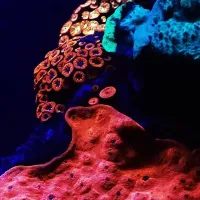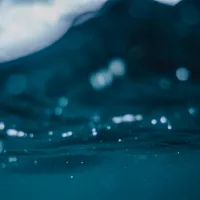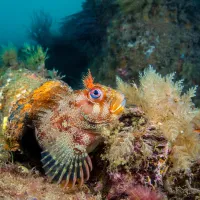About the Coral reef laboratory
The laboratory is a fully established system for coral reef projects and experimentation. Its facilities include a coral nursery facility to produce coral colony replicates for experiments, and an experimental aquarium facility for long-term experiments with reef building corals.
The aquarium system allows experimentation under tightly controlled conditions.
The laboratory also hosts representatives of actiniaria, ceriantharia, octocorallia, corallimorpharia and sclearactinia.
Our coral reef tank acts as a display, marine research and teaching aquarium. It's dedicated to demonstrating our commitment to public access and engagement about coral restoration.





